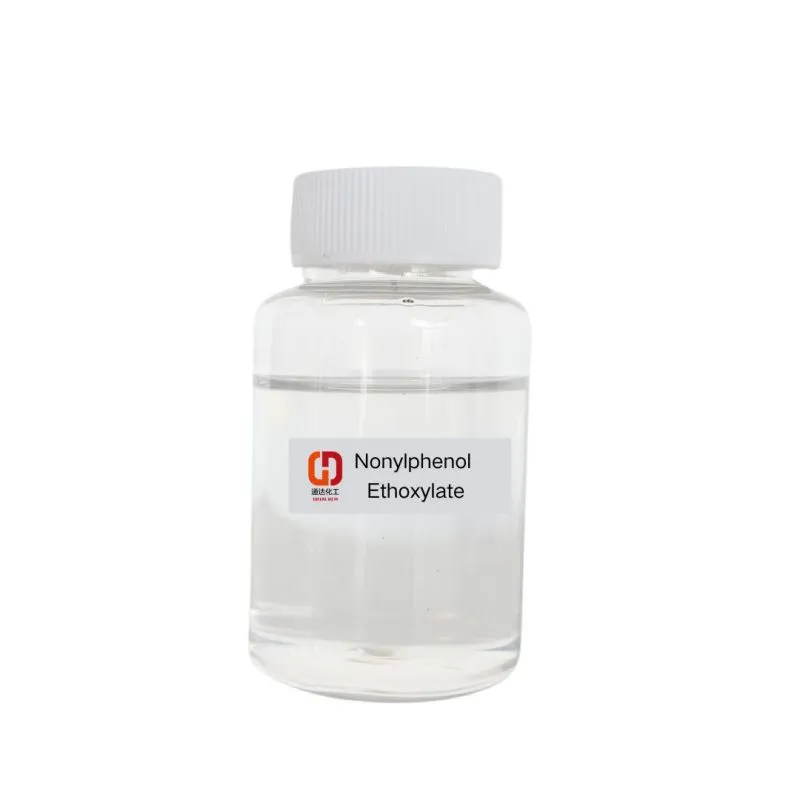What is nonylphenol ethoxylate used for?
2024-09-21
Nonylphenol ethoxylate (NPE) is a widely used nonionic surfactant that plays a critical role in various industrial and commercial applications. Its primary function is to reduce surface tension between liquids, aiding in the emulsification, dispersion, and cleaning processes. Here are the main uses of nonylphenol ethoxylates:

1. Detergents and Cleaners:
- Industrial and Household Cleaners: NPEs are common ingredients in industrial cleaners for manufacturing plants, as well as household laundry and dishwashing detergents. They help to break down grease, oils, and stains.
- Textile Cleaning: NPEs are used to clean fabrics, particularly in textile processing, where they aid in removing oils and dirt from fibers during production.
2. Emulsifiers:
- Agricultural Pesticides: NPEs act as emulsifiers in pesticide formulations, ensuring that the active ingredients are evenly distributed in water-based sprays, which improves the effectiveness of the pesticide.
- Paints and Coatings: They help stabilize oil and water mixtures in paints, coatings, and adhesives, improving consistency and application performance.
3. Textile and Leather Processing:
- Wetting Agents: NPEs are used in textile processing to improve the penetration of dyes, water, and chemicals into fabrics, ensuring uniform coloring and treatment.
- Leather Finishing: They also help in the leather industry by acting as dispersing agents and wetting agents in the treatment of leather products.
4. Paper and Pulp Industry:
- De-inking Agents: In paper recycling processes, NPEs are used to remove ink from old paper products, helping to recover clean fibers for reuse in new paper production.
5. Oil and Gas Industry:
- Enhanced Oil Recovery: NPEs are used in oil drilling operations to reduce the surface tension of oil, making it easier to recover from underground reservoirs.
- Defoamers: They act as defoamers in oil extraction processes to prevent foaming during drilling and production.
6. Cosmetics and Personal Care Products:
- In smaller quantities, NPEs can be used as emulsifiers in cosmetics, such as lotions, creams, and shampoos, where they help blend oil- and water-based ingredients.
7. Industrial Applications:
- Metalworking Fluids: NPEs are used in metalworking fluids and lubricants to prevent corrosion and improve the efficiency of cutting, drilling, and grinding processes.
- Surface Treatment: In industrial cleaning and surface preparation, NPEs help remove contaminants from surfaces, improving bonding, painting, or coating.
Environmental Concerns and Regulations:
NPEs have been associated with environmental and health concerns, particularly due to their slow biodegradability and potential to act as endocrine disruptors. Once released into water systems, they can break down into nonylphenol, which is toxic to aquatic life. As a result, the use of NPEs is increasingly being restricted or regulated in several regions, including the European Union and Canada.
Alternatives:
Because of these concerns, industries are gradually shifting to more environmentally friendly alternatives, such as alcohol ethoxylates or plant-based surfactants, which are more biodegradable and less harmful to ecosystems.


